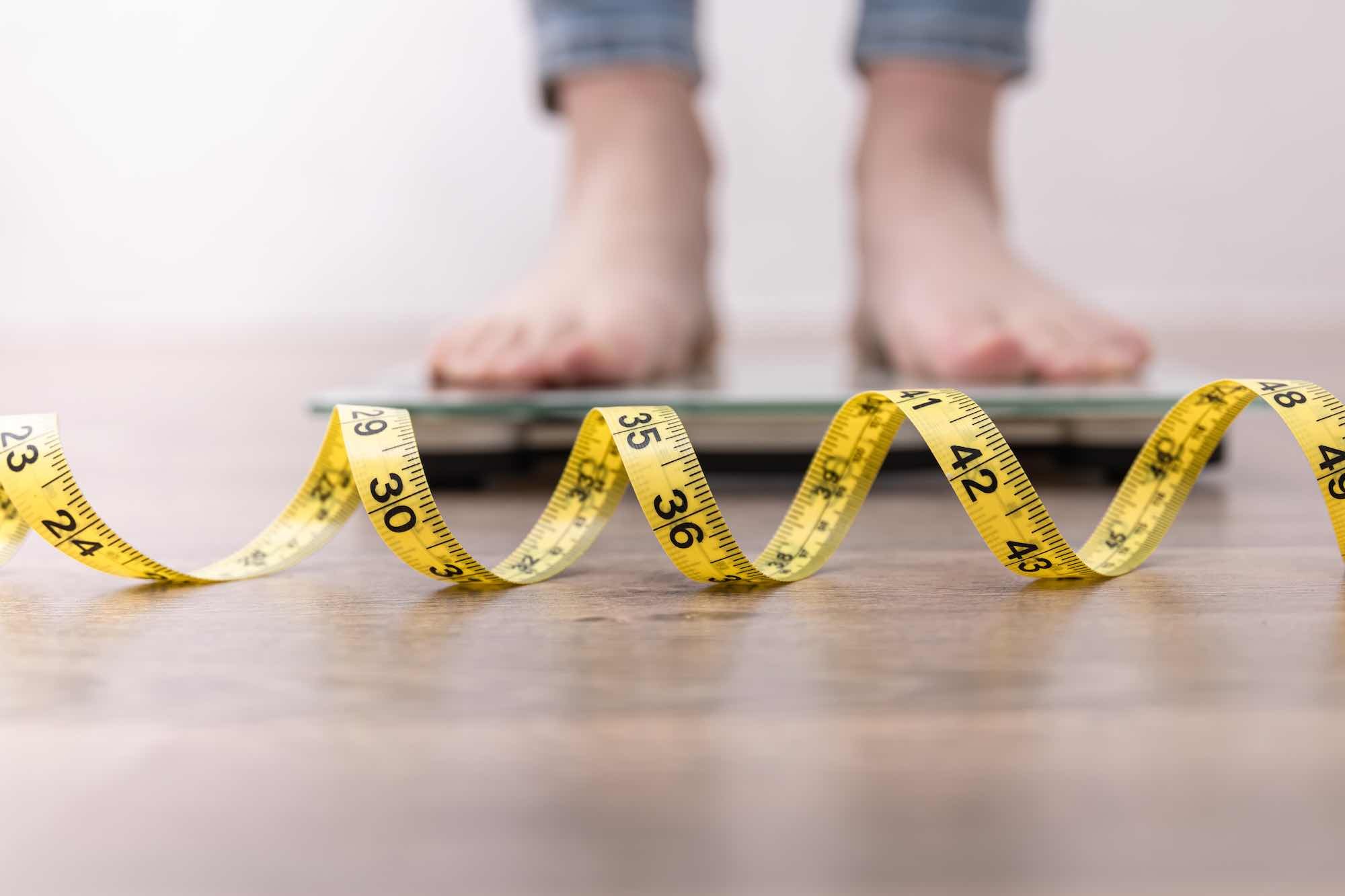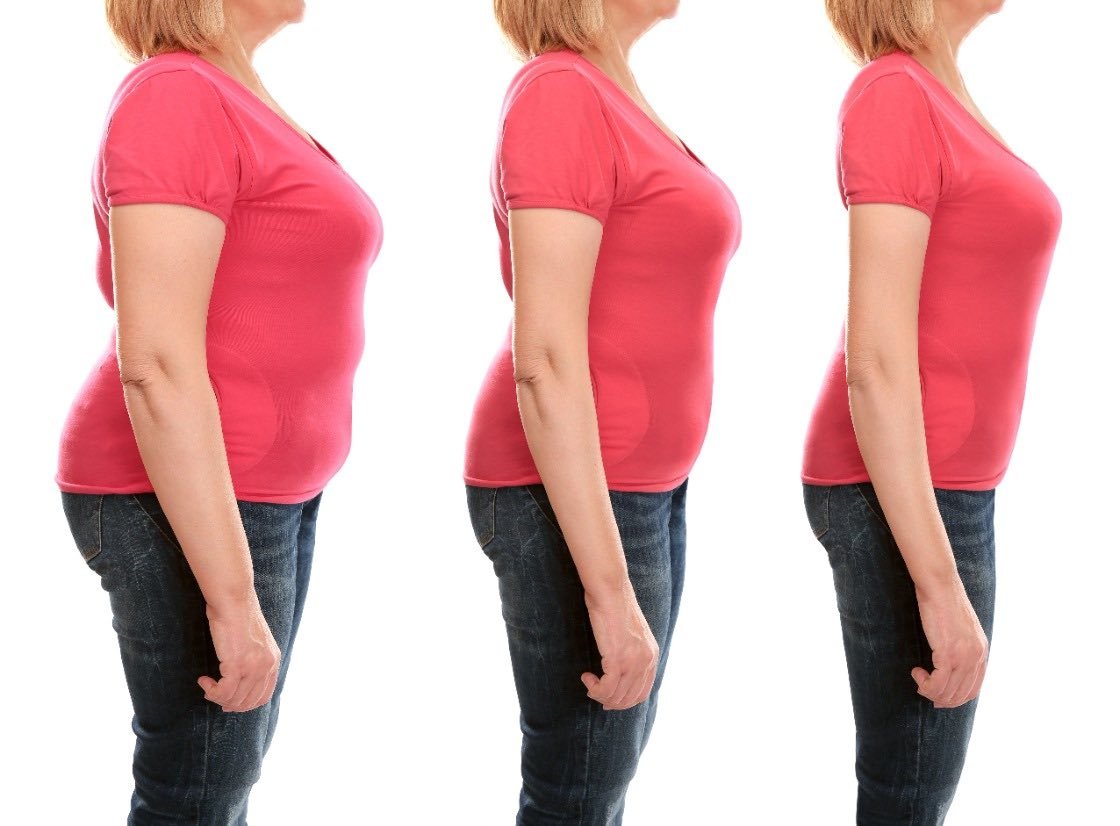Weight Loss After 40: Dietitian Tips for Males and Females
Weight loss after 40 can seem like an uphill battle for people who are currently fighting to lose those few extra pounds. So here are my dietitian tips to help you get the results you’re looking for.
Losing weight after 40, 50 and 60 is a special sort of effort because, compared to when you try weight loss in your 20s, the motivation (and purpose for the weight loss) may be quite different. Many people over 40 who are trying to lose weight cite maintenance of health and prevention of chronic diseases as their motivation rather than aesthetics.
Despite a more urgent rationale, there are significant barriers to losing weight after 40 when compared to trying to lose weight in your younger years. However, it’s important to know that it’s still very possible. Here are key things to consider, and ways to achieve weight loss success.
Why is it Harder to Lose Weight After 40?
Body systems change significantly as you age, and the biggest changes tend to start around the mid-30s. These changes can create hurdles to weight loss that simply weren’t existent before the age of 30. However, it’s important to be made aware of them in order to understand how to conquer these barriers. Here are the top three reasons why it’s harder ot lose weight after 40.
1. Slower Metabolism
Muscle mass and the ability to gain more muscle mass begins a steady decline in our 30s and 40s, with it really picking up between the ages of 60 to 80. This can result in a decrease in metabolism, so you may have to eat less than a younger individual of the same weight in order to lose weight.
2. Sleep Quality
Several factors can impact sleep quality as you age, including having a family, lower levels of human growth hormone, and earlier awakening. Some older adults of a larger body mass may also suffer from sleep apnea which can also result in poor sleep quality.
In a study with over 100 subjects aged 50-60, it was found that older adults who sleep at least 6-8 hours had better success when attempting to lose weight.
3. More Alcohol
Just because we get older doesn’t mean we stop being fun! As people over 40 begin to work a more stable career or enter retirement age, they tend to have more free time on their hands to do things like social drinking.
However, regular drinking of more than 2 drinks for women and 3 drinks for men can inhibit weight loss with excessive calorie intake. It can also stimulate you to eat more food. And the type of food eaten after some drinks are not necessarily always healthy foods. Finally, excess drinking can impede sleep quality which ties into the other barrier above.
Female Weight Loss After 40
Women have been wondering for years how their male partners manage to just have weight fall off while they stay stagnant. All despite eating the same things and having the same exercise regimen.
In general, even before age 40 men have more testosterone than women. This means that they can hold more muscle on their body and maintain a faster metabolism than women without really doing anything extra.
Weight Loss During Menopause
Now take that into account with the fact that menopause typically happens around age 50. This is where women around age 45 to 55 really start to notice changes. Not only with weight, but body composition and fat distribution. Changes in estrogen can cause even more decrease in muscle mass, increase in insulin resistance (which affects how your body metabolizes sugar) and more fat storage around the waist.
That’s not to say that men over 40 don’t still have to deal with the obstacles mentioned earlier. ut there’s no doubt that women between ages 40-60 have to work a little harder to lose weight due to hormones.
How To Jumpstart Weight Loss After 40
For women, when nothing else works, intermittent fasting may be a viable option. It may also have some additional benefits along with weight loss too, though solid evidence is mixed.
For men, strength training is advantageous with your extra testosterone. This can help build and maintain muscle for a healthy metabolism. In addition to that, there are few other nutritional steps you can take.
1. Eat Lean Proteins
Eating proteins that are low in saturated fat can help promote lean muscle mass and aso help with satiety to prevent overeating. Including a generous serving of protein in each of your meals and snacks can put you in a good spot hunger-wise and also slow the muscle loss associated with aging. Protein examples include eggs, protein powder, seafood, poultry, and legumes
2. More Vegetables and Whole Grains
There are many ways in which vegetables and whole grains can help you meet your weight goals, including increasing the feeling of fullness, stabilizing blood sugar, and supporting healthy digestion.
For women, this is especially important. As mentioned above, insulin resistance can make it harder to lose weight. However, a diet rich in fruits, vegetables, and whole grains can help due to these foods being high in fiber. Plus they contain antioxidants that can not only help with menopausal symptoms, but can also aid in preventing chronic diseases that those over 40 are at a higher risk for.
3. Eat Breakfast
Unless you are going the fasting route, eating a solid breakfast with a good amount of protein, a starch, and some sort of fruit and vegetable is crucial. Eating breakfast gets your metabolism and hunger hormones off to a good start during the day.
When people skip breakfast (in the absence of a structured fast under the guidance of a dietitian), they tend to snack more throughout the day or full-on binge at night due to an imbalance in hunger cues.
4. Resistance Training
Weight and strength training has been proven to improve quality of life in older adults. A study done in adults 60 years of age and older showed that exercising with weights 3 to 4 times a week:
increased lean body mass
improved motor functions
Improved other age-related impairments like increased risk of heart disease.
Regular exercise can also prevent further weight gain while you are on your weight loss journey.
The Bottom Line for Weight Loss After 40
Whether you are 40, 50, 60 or beyond, any of the nutrition and lifestyle interventions we talked about can improve your health and help lower your risk of diseases that often come with aging. While it appears older women certainly have it harder than the men, it’s never too late to succeed in a weight loss journey.
I’m a dietitian passionate about helping people over the age of 40 lose weight. And I am also a personal trainer who can guide you through how to properly exercise as an older adult. No matter your age or gender, schedule a call to discuss how my weight loss program will help you reach your weight loss goals.


